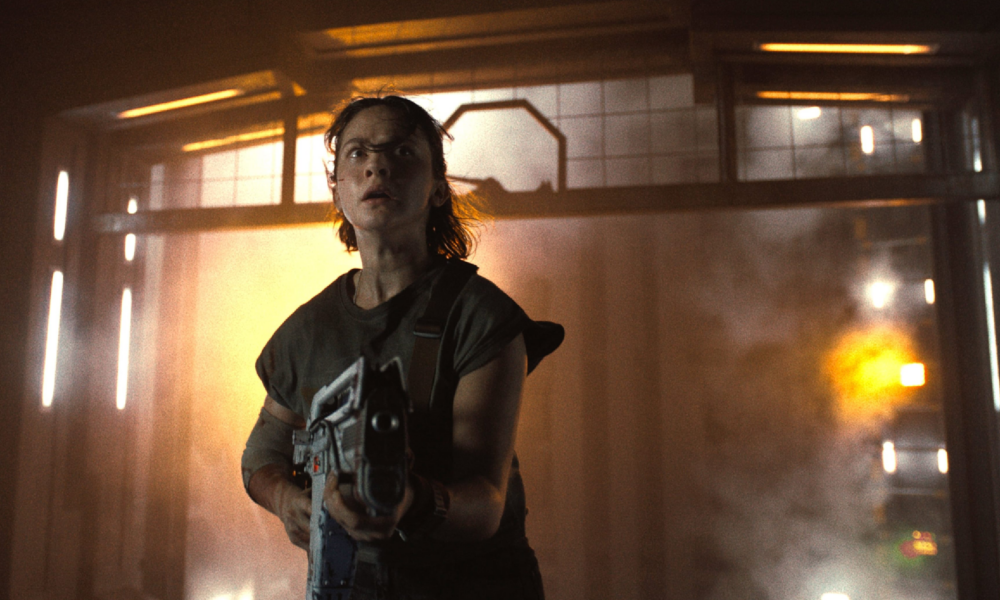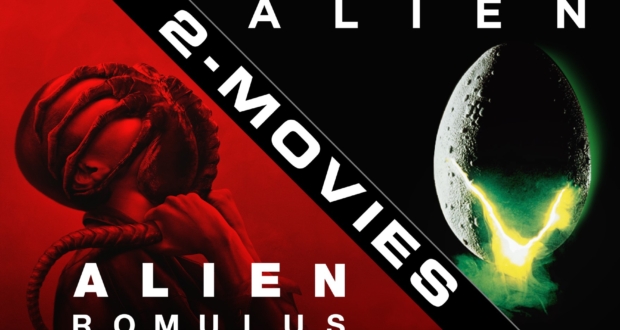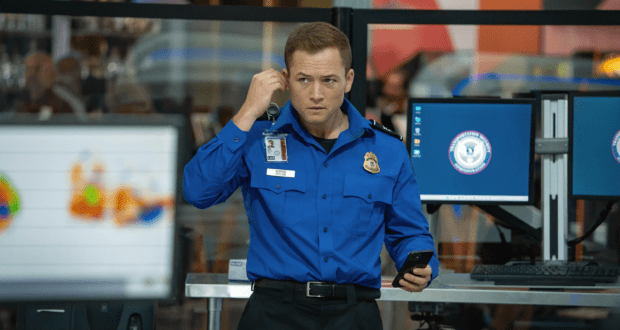Alien: Romulus, directed by Fede Álvarez, is a thrilling new chapter in the Alien franchise, deftly balancing the elements of science fiction, action, and horror that have defined this iconic series. Serving as a standalone interquel between Alien (1979) and Aliens (1986), this film plunges viewers into a claustrophobic nightmare that both honors its predecessors and stakes its own claim within the franchise.
The film is set against the desolate and oppressive backdrop of space, in which a group of young space colonists stumble upon a derelict space station that harbors a deadly secret. The story begins with a drone space probe discovering an organic object among the wreckage of the USCSS Nostromo. At a secret facility, the dormant Xenomorph within the object has become unleashed, posing a lethal potential.
The narrative focuses on Rain Carradine (Cailee Spaeny), an orphan working on the mining colony Jackson’s Star. Rain’s adoptive brother Andy (David Jonsson), a reprogrammed synthetic, is central to her survival. When Rain’s contract is unexpectedly extended, she teams up with her ex-boyfriend Tyler (Archie Renaux), his pregnant sister Kay (Isabela Merced), his cousin Bjorn (Spike Fearn), and Bjorn’s girlfriend Navarro (Aileen Wu) to escape to the more hospitable planet Yvaga. The group’s goal: salvage cryonic stasis chambers from a derelict spacecraft.
The space station’s cold, dark corridors amplify the impeccably crafted atmosphere of tension and impending doom in the film. Every single moment of screen time feels grimy and gross. It’s one of the most atmospheric movies that I have ever seen.
The cast delivers strong performances that add depth to the film’s relentless pace and intense atmosphere. Cailee Spaeny shines as Rain, portraying her with a mix of vulnerability and resilience that anchors the narrative. David Jonsson as Andy provides a nuanced performance, especially as his character grapples with the implications of his reprogramming and subsequent reset to Weyland-Yutani’s directives.
Archie Renaux’s Tyler is compelling as a flawed but courageous leader, and Isabela Merced brings emotional complexity to Kay, particularly in the later scenes involving the Prometheus strain. Spike Fearn and Aileen Wu round out the cast with solid performances, adding to the group’s dynamic and tension-filled interactions.
Fede Álvarez’s direction is masterful, capturing the essence of Ridley Scott’s original vision while injecting fresh elements that keep the franchise alive and relevant. The visual effects are top-notch, with the Xenomorphs rendered in terrifying detail. The derelict space station Romulus is a character in itself, its labyrinthine structure and decaying interiors heightening the sense of dread.
Álvarez skillfully uses lighting and sound to build suspense, making excellent use of shadows and silence to keep audiences on edge. The film’s action sequences are intense and well-choreographed, maintaining a relentless pace that never feels rushed or overwhelming.
Alien: Romulus explores familiar themes of survival, corporate greed, and the ethics of artificial intelligence. This is something that the franchise does so well. It explores themes that are way deeper than one would imagine a film about aliens would get and Romulus is no different.
Overall:
Alien: Romulus is a gripping addition to the beloved saga, blending horror, action, and sci-fi elements in a way that feels both fresh and familiar. Álvarez has created a film that pays homage to its roots while forging its own path, with strong performances, stunning visuals, and a story that keeps you hooked from start to finish.
-
Acting - 10/10
10/10
-
Cinematography/Visual Effects - 9.5/10
9.5/10
-
Plot/Screenplay - 10/10
10/10
-
Setting/Theme - 10/10
10/10
-
Watchability - 10/10
10/10
-
Rewatchability - 10/10
10/10

















